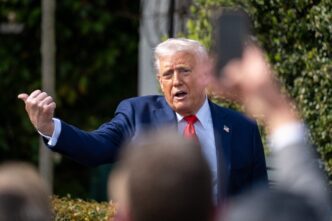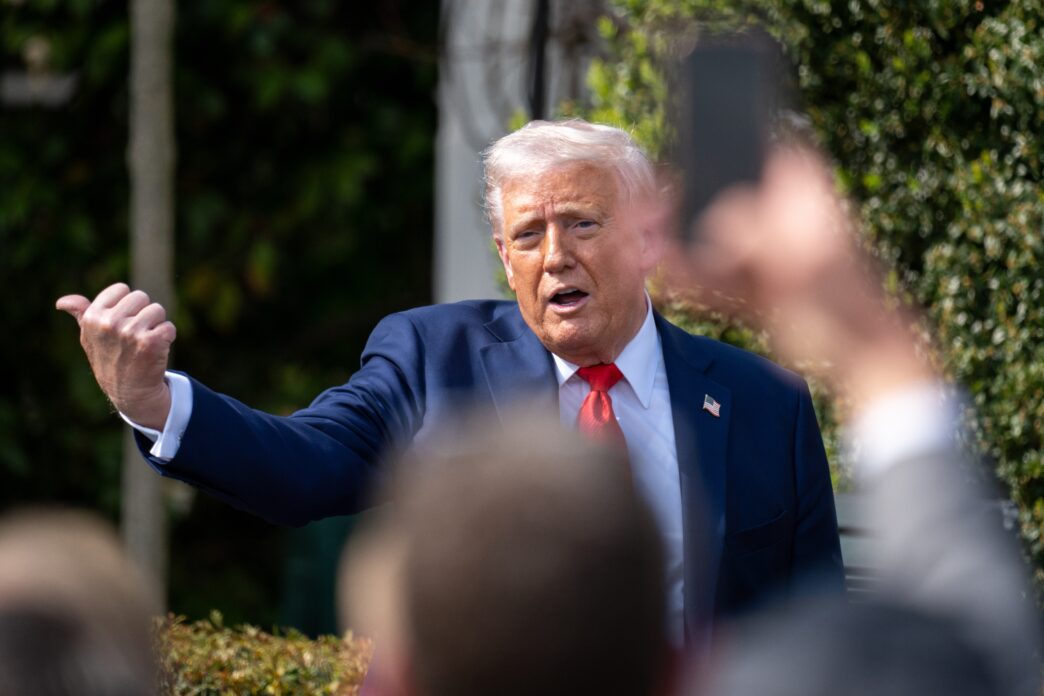Executive Summary
The Story So Far
Why This Matters
Who Thinks What?
President Donald Trump is intensifying his calls for Senate Republicans to eliminate the filibuster rule, urging them to unilaterally reopen the government and advance his agenda following a challenging week for the GOP, which included significant electoral losses on Tuesday. Despite strong opposition from Republican congressional leaders and ongoing bipartisan discussions to end the government shutdown, President Trump reiterated his stance on Friday, arguing the move would resolve the current crisis and secure future electoral victories.
Trump’s Filibuster Push
President Trump has consistently pressed Senate Republicans in public and private to use the “nuclear option” to bypass Democrats and end the government shutdown. He views the filibuster as an impediment to his ambitions, enabling Democratic opposition and dampening Republican chances in upcoming elections. Trump believes that eliminating the filibuster would allow the party to enact policies that would make it “impossible to lose an election.”
On Friday, Trump made his case in three separate Truth Social posts and during a White House meeting with Hungarian Prime Minister Viktor Orban. He argued that Republicans are making a “big mistake” by not moving to change the Senate rules.
GOP Leaders Resist “Nuclear Option”
Despite President Trump’s persistent advocacy, GOP congressional leaders have firmly rejected the idea of eliminating the filibuster. They have communicated to Trump, both publicly and privately, that such a drastic action is “off the table.” Many Republicans view the filibuster as a crucial mechanism that protects conservative policies and prevents sweeping reforms by the opposing party.
Ohio GOP Sen. Jon Husted emphasized that a vote on the filibuster is not on the Senate agenda, stating that discussing it serves as a distraction that Democrats desire. While Trump acknowledged earlier in the week he “probably not” damage his relationship with Republican lawmakers over the issue, he has continued to press them.
Shutdown Stalemate Continues
The president’s focus on the filibuster has further complicated efforts to negotiate an end to the record-long government shutdown. This has left lawmakers uncertain about what concessions Trump might accept and has emboldened Democrats, especially following their recent electoral successes.
Senate Democrats rejected a Republican offer to vote on extending enhanced Affordable Care Act subsidies, instead proposing a one-year extension while long-term negotiations continue. Republican lawmakers quickly opposed this counter-proposal, leaving the two sides deadlocked heading into the weekend. A White House official characterized the Democratic offer as a “massive climbdown” but maintained the administration’s stance of not negotiating until the government is reopened.
Political Blowback for the GOP
Recent electoral results have served as a clear indicator of the shutdown’s negative political impact on Republicans. Public polling largely attributes blame for the shutdown to the GOP and President Trump, with one Trump political adviser acknowledging that the party “got our asses kicked” and that the shutdown fueled Democratic enthusiasm.
White House officials are reportedly concerned that the shutdown is diverting attention from the administration’s policy achievements and contributing to voter dissatisfaction over cost-of-living issues. Trump claimed on Friday that prices are “down substantially” under his administration, despite evidence suggesting otherwise for many grocery items.
Few Alternatives Presented
Despite the political headwinds and the lack of support for changing the filibuster, President Trump has offered few alternative solutions to the ongoing crisis. He remains resistant to meeting with Democrats or making concessions on healthcare, still seeking a victory from the standoff. Trump views the elimination of the filibuster as a means to achieve a broader legislative agenda, including measures to tighten voting rules, which he considers more important than merely reopening the government.
With no fresh appetite on Capitol Hill for altering the filibuster and negotiations at a standstill, the path out of the government shutdown remains unclear. Trump declined to weigh in on the debate over ACA subsidies, stating it was not his “fault” that rates were increasing, attributing it to the Affordable Care Act itself.








